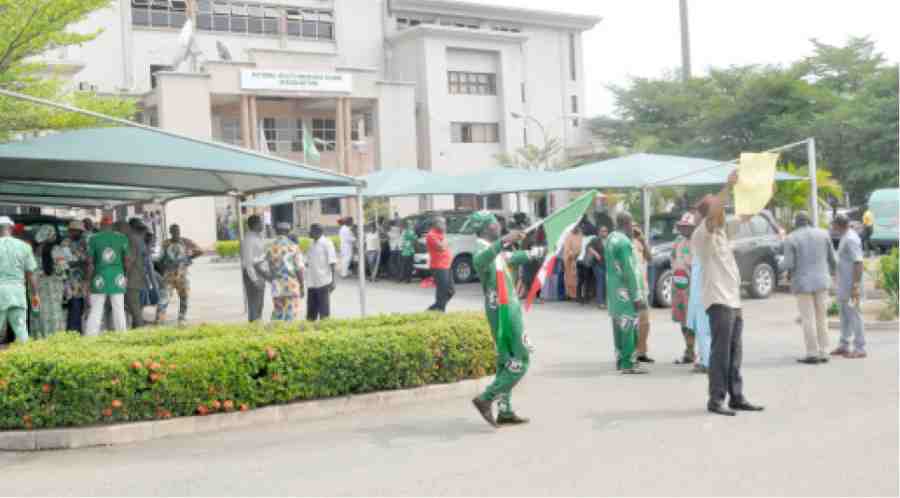The Nigerian Medical Association in the FCT has called on federal government to declare the leadership crisis at the National Health Insurance Scheme (NHIS) an emergency and be “proactive” about dealing with it.
It comes a day after the NHIS executive secretary, Usman Yusuf, defied his suspension by the scheme’s governing board and attended work, sparking protests at the NHIS office in Utako.
“Federal government should be proactive about it, because we are dealing with the health of Nigerians,” said Dr Philips Ekpe, chairman of NMA in the FCT, which had slated health insurance and NHIS on the agenda of its Physician’s Week in Abuja on Tuesday.
The crisis has lingered, but Ekpe said, “The important thing is that the patients will suffer.”
“Our stance is to push the federal government, the federal ministry of health to resolve this crisis so that our people can get their health.”
He raised concerns that health maintenance organisations will not be able to function properly and hospitals would be scared as the crisis drags on.
Hospitals attend to insured patients covered by individual health maintenance oganisations, which in turn are paid by the NHIS.
He called for the crisis to be declared an emergency and solved as quick as possible.
NMA’s focus on NHIS comes amidst concern that only around 7 in 100 Nigerians, mostly working in the formal sector, have any form of health coverage under the scheme.
The association said it wanted attention of government, partners and the public on the need for a multisector approached to institute political will for both investment and alternative funding for universal health coverage.
The Week is also expected to consider the role of doctors in helping Nigeria close gap in polio eradication.
Nigeria still has one more year to go without a case of polio on its path toward being declared polio free.
In addition, NMA, which this year introduced a “doctor’s stamp” is concerned about the impact of quacks on health delivery.
It cited several non-medical personnel who have been discovered to be performing surgical procedures, including one who ran a maternity clinic for nearly a decade undetected in Gwarimpa and another who worked as a doctor in the federal health ministry for more than a decade.
Every doctor is expected to sign off on prescription and medical reports using the “stamp”, which comes with biometric information of a duly licensed doctor.

 Join Daily Trust WhatsApp Community For Quick Access To News and Happenings Around You.
Join Daily Trust WhatsApp Community For Quick Access To News and Happenings Around You.


